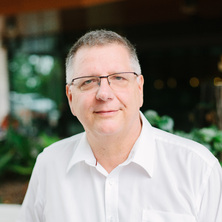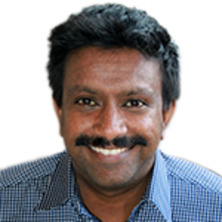The Future of Precision Prevention for Advanced Melanoma
Abstract
Precision prevention of advanced melanoma is fast becoming a realistic prospect, with personalized, holistic risk stratification allowing patients to be directed to an appropriate level of surveillance, ranging from skin self-examinations to regular total body photography with sequential digital dermoscopic imaging. This approach aims to address both underdiagnosis (a missed or delayed melanoma diagnosis) and overdiagnosis (the diagnosis and treatment of indolent lesions that would not have caused a problem). Holistic risk stratification considers several types of melanoma risk factors: clinical phenotype, comprehensive imaging-based phenotype, familial and polygenic risks. Artificial intelligence computer-aided diagnostics combines these risk factors to produce a personalized risk score, and can also assist in assessing the digital and molecular markers of individual lesions. However, to ensure uptake and efficient use of AI systems, researchers will need to carefully consider how best to incorporate privacy and standardization requirements, and above all address consumer trust concerns.
Speaker
 Professor Soyer is an academic dermatologist with over 30 years experience in the field. He was appointed as the inaugural Chair in Dermatology by The University of Queensland (UQ) in 2007 and as Director of the Princess Alexandra Hospital (PAH) Dermatology Department in 2008. He has a strong focus on translational skin cancer research in his dual role as Director of the Dermatology Research Centre (DRC), UQ Diamantina Institute, UQ Faculty of Medicine; and leadership of the Dermatology Department at the Princess Alexandra Hospital in Brisbane.
Professor Soyer is an academic dermatologist with over 30 years experience in the field. He was appointed as the inaugural Chair in Dermatology by The University of Queensland (UQ) in 2007 and as Director of the Princess Alexandra Hospital (PAH) Dermatology Department in 2008. He has a strong focus on translational skin cancer research in his dual role as Director of the Dermatology Research Centre (DRC), UQ Diamantina Institute, UQ Faculty of Medicine; and leadership of the Dermatology Department at the Princess Alexandra Hospital in Brisbane.
Professor Soyer is internationally recognised in the field of dermatology with particular expertise in the areas of clinical dermatology, dermatooncology, dermatopathology and dermatologic imaging (dermoscopy and reflectance confocal microscopy). Within the dermatology discipline he is a pioneer and world leader in the field of dermoscopy of pigmented skin lesions, a non-invasive diagnostic method. He has lead the development of the morphologic classification system currently used worldwide.
One of his research focuses is to expand the concept and applications of teledermatology and teledermoscopy, and he is CIE in the Centre of Research Excellence (CRE) in Telehealth. He was awarded a CRE for the Study of Naevi (2016-2020), to further investigate why some moles turn into deadly cancers and others don't, with the aim of improving our understanding of naevus development and transformation, along with recognition of the associated changes, to better prevent, predict and detect skin cancer and melanoma.
Professor Soyer has an extensive publication record with over 600 publications to date, with more than 650 citations per year (in the last 5 years) and an h-index of 70 (Google Scholar). His text book entitled "Dermoscopy - The Essentials 2nd Edition", co-authored with G Argenziano, R Hofmann-Wellenhof and I Zalaudek, has now been translated into 4 different languages (Russian, Chinese, Polish and Portuguese) and is considered a world-leading text book in the field.
Professor Soyer was awarded a Medical Research Future Fund (MRFF) Next Generation Clinical Researchers Program Practitioner Fellowship (2018-2022) and was previously a recipient of an NHMRC Practitioner Fellowship (2012-2016). Since his appointment with UQ he has been awarded 2 NHMRC Centre of Research Excellence Grants (CIA, CIE), 4 NHMRC Project Grants (CIA, CIA, CIB, CID), 1 NHMRC Partnership Grant (CIB), 2 ARC Discovery Project Grants (CIB, CID), and a Queensland Genomic Health Alliance (QGHA) Demonstration Project Grant (CIA), with many additional projects funded through other competitive, industry and philanthropic funding sources. More recently, he was awarded the Australian Cancer Research Foundation (ACRF) Australian Centre of Excellence in Melanoma Imaging and Diagnosis (ACEMID) through a $9.9M infrastructure grant. In total, through his involvement as an investigator, he has achieved over $24M in research funding for UQ.
Host
 Shakes' expertise include image processing, machine/deep learning, artificial intelligence (AI), image reconstruction and medical image analysis. He received his Ph.D in Theoretical Physics from Monash University, Melbourne in 2010 on a discrete theory of the Radon transform that utilises circulant matrices. He did a post-doctoral fellowship with CSIRO, Brisbane within the biomedical imaging group on musculoskeletal imaging. More specifically, he developed deformable model and machine learning algorithms for knee, hip and shoulder joint segmentation for deployment on the Siemens Syngo platform. He is currently a Senior Lecturer and leads a team of 10+ researchers working image analysis and AI research across healthcare and medicine. He currently teaches the computer science courses Theory of Computation and Pattern Recognition and Analysis.
Shakes' expertise include image processing, machine/deep learning, artificial intelligence (AI), image reconstruction and medical image analysis. He received his Ph.D in Theoretical Physics from Monash University, Melbourne in 2010 on a discrete theory of the Radon transform that utilises circulant matrices. He did a post-doctoral fellowship with CSIRO, Brisbane within the biomedical imaging group on musculoskeletal imaging. More specifically, he developed deformable model and machine learning algorithms for knee, hip and shoulder joint segmentation for deployment on the Siemens Syngo platform. He is currently a Senior Lecturer and leads a team of 10+ researchers working image analysis and AI research across healthcare and medicine. He currently teaches the computer science courses Theory of Computation and Pattern Recognition and Analysis.
About AI Seminar Series
The AI Seminar Series will explore relevant topics in artificial intelligence and invite industry speakers and researchers to share their knowledge, experience and success - promoting transdisciplinary AI research and collaboration.
Venue
Hawken Building (50)
